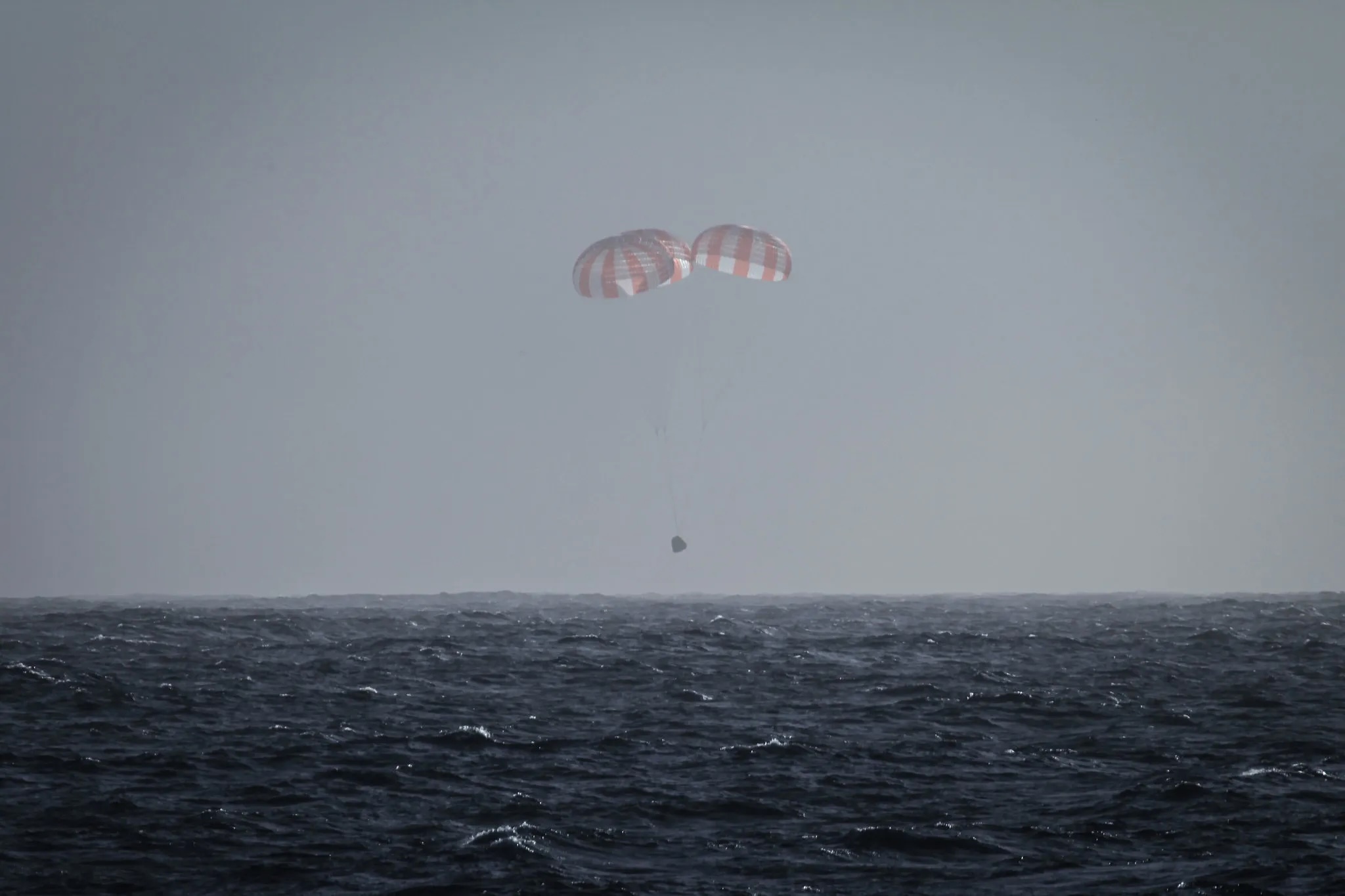30.07.2024

A first-generation Dragon cargo spacecraft splashing down off the California coast in 2015. SpaceX will move Dragon splashdowns back to the West Coast in 2025. Credit: SpaceX
WASHINGTON — SpaceX will move Dragon spacecraft splashdowns from off the coast of Florida to the West Coast starting in 2025, a move the company says is intended to reduce risks from reentering debris from the spacecraft’s trunk section.
In a July 26 statement, SpaceX announced that it would shift the splashdown locations for Dragon spacecraft to locations off the California coast as part of measures to control where the trunk section reenters after being jettisoned from the Dragon capsule.
Since the introduction of the Crew Dragon spacecraft and its cargo variant, the trunk section has been released before the deorbit burn, reentering passively weeks to months later. SpaceX said it chose this option after the company, working with NASA, used “industry-standard models” that predicted that the trunk would break up completely on reentry, with no debris surviving.
That has not been the case. On several occasions sizable pieces of debris from Dragon trunks have survived reentry and landed in Australia, Saskatchewan and North Carolina, among other places. The debris falls caused no damage or injuries but illustrated the risk the posed.
Earlier this year, Steve Stich, NASA commercial crew program manager, said the agency was working with SpaceX on ways to better control the debris created by reentering trunks. One option being studied, he said then, would be to jettison the trunk after Dragon performs its deorbit burn, which would allow the trunk to reenter around the same time along the reentry corridor for the capsule.
SpaceX said that is the approach that the company is taking. “SpaceX will implement a software change that will have Dragon execute its deorbit burn before jettisoning the trunk, similar to our first 21 Dragon recoveries,” it stated. It ruled out alternatives that included a complete redesign of the trunk or addition of a propulsion system to it for a controlled reentry.
That will require a splashdown off the California coast, rather than near Florida. “Moving trunk separation after the deorbit burn places the trunk on a known reentry trajectory, with the trunk safely splashing down uprange of the Dragon spacecraft off the coast of California,” the company stated.
Sarah Walker, director of Dragon mission management at SpaceX, said at a July 26 briefing about the upcoming Crew-9 Crew Dragon mission that the change will start some time next year. SpaceX will move a recovery vessel currently in Florida to California, operating out of the Port of Long Beach.
She added that the Crew-9 mission, scheduled to launch as soon as Aug. 18, will splash down in early 2025 off Florida while the transition is in progress. “We hope for that to be complete shortly after Crew-9’s return.”
While the change will mitigate the debris risk, it does pose new problems for Dragon recovery operations. “NASA gave us new requirements, starting with CRS-21, for even tighter return timelines and enhanced science capability,” she said, which was factored into plans for Dragon recovery operations in Florida.
“That’s the new challenge ahead of us now and what we’ve been working through here this year, is how do we come back to the West Coast but still maintain all of what we’ve learned and stood up to support crews, not just cargo,” she said, in terms of quick handover of science payloads after splashdown. “We’re working through all of the details of that, but it will be a better capability than we had with Dragon 1 by design.”
There are other benefits, though, of splashing down off the West Coast. “One benefit of the West Coast is much better weather,” she said, based on an examination of conditions and the weather rules for Dragon splashdown. “We actually saw that the West Coast sites that we’re looking at have much better weather, which allows us to have much better return availability.”
Quelle: SN
